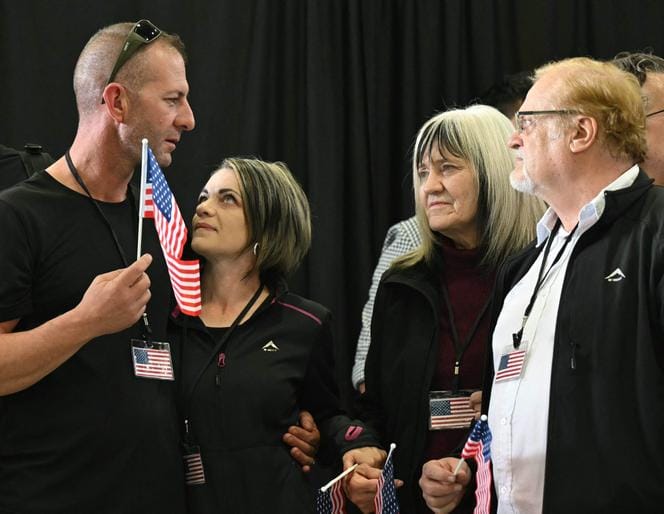Shocking Secret Pressure Rushed ONE Refugee Group Through Trump Admin

A striking difference in how certain refugees were processed by the Trump administration has raised questions.
While many waited, one specific group saw their path to the United States move with unprecedented speed.
A Tale of Two Refugee Streams
The United States has a long history of providing refuge to those fleeing persecution. However, the process can often be lengthy, involving multiple stages of vetting and approval.
During the Trump administration, refugee admissions significantly decreased globally. This led to uncertainty and prolonged waits for many who had hoped to resettle in the U.S.

Reports emerged detailing delays for thousands of individuals who had already cleared security checks and received approval under previous policies.
Many of these approved refugees remained in limbo abroad, unsure when, or if, they would be able to travel to the United States to begin new lives.
Focus on Farmers and Property Rights
Amidst these broader challenges, a particular focus emerged regarding the situation facing farmers in South Africa.
President Trump publicly expressed concern about what he described as large-scale killings and land confiscations affecting farmers in the country.
"Farmers are being killed," President Trump stated at one point. "They happen to be white. Whether they are white or black makes no difference to me."

He highlighted the plight of this group as fitting the criteria for refugee protection.
His administration subsequently moved to address these concerns.
Differing Timelines Spark Interest
What caught the attention of observers was the stark contrast in processing times.
While many refugees faced delays stretching into months or even years, a group of white South Africans, often referred to as Afrikaners, saw their applications move at an unusually fast pace.

Reports indicated that dozens of individuals from this group completed the entire refugee resettlement process, from initial application to arrival in the U.S., in a matter of roughly three months.
This timeline stood out significantly when compared to the experiences of other refugee populations.

Questions naturally arose: How could this group be processed so quickly when others were experiencing such significant holdups?
Administration officials had previously cited challenges with the resettlement infrastructure as a reason for delays in other cases.

The Drive to Expedite
Sources within non-governmental organizations involved in refugee resettlement offered insight into the disparity.
According to these sources, refugee agencies working with the administration received directives regarding the Afrikaner cases.
There was reported pressure from top administration officials to prioritize and accelerate the processing of applications from this specific group.

This internal push appears to have been the driving force behind the unusually rapid resettlement timeline observed for the white South African refugees.
It suggests that when the administration identified a particular situation as a priority, it was capable of mobilizing resources to overcome bureaucratic hurdles and expedite the process.
While the general refugee program faced administrative challenges, a specific focus allowed one group to navigate the system much faster.



